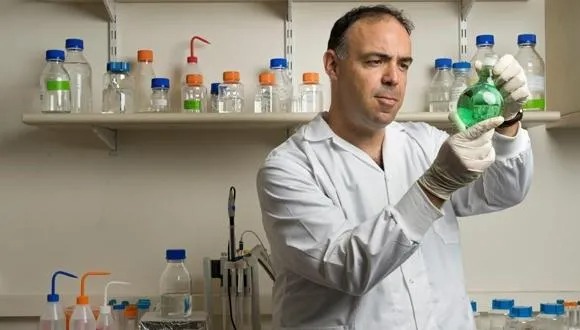For the first time in the world: researchers at Tel Aviv University encoded a toxin produced by bacteria into mRNA (messenger RNA) molecules and delivered these particles directly to cancer cells, causing the cells to produce the toxin – which eventually killed them with a success rate of 50%.
“Our idea was to deliver safe mRNA molecules encoded for a bacterial toxin directly to the cancer cells – inducing these cells to actually produce the toxic protein that would later kill them. It’s like placing a Trojan horse inside the cancer cell.” – Prof. Dan Peer
“It’s like placing a Trojan horse inside the cancer cell”
The groundbreaking study was led by PhD student Yasmin Granot-Matok and Prof. Dan Peer, a pioneer in the development of RNA therapeutics and Head of the Nanomedicine Laboratory at The Shmunis School of Biomedicine and Cancer Research, also serving as TAU’s VP R&D. The study’s results were published in Theranostics.
Prof. Peer explains: “Many bacteria secrete toxins. The most famous of these is probably the botulinum toxin injected in Botox treatments. Another classic treatment technique is chemotherapy, involving the delivery of small molecules through the bloodstream to effectively kill cancer cells. However, chemotherapy has a major downside: it is not selective, and also kills healthy cells. Our idea was to deliver safe mRNA molecules encoded for a bacterial toxin directly to the cancer cells – inducing these cells to actually produce the toxic protein that would later kill them. It’s like placing a Trojan horse inside the cancer cell.”

Prof. Dan Peer
Impressive Results
First, the research team encoded the genetic info of the toxic protein produced by bacteria of the pseudomonas family into mRNA molecules (resembling the procedure in which genetic info of COVID-19’s ‘spike’ protein was encoded into mRNA molecules to create the vaccine). The mRNA molecules were then packaged in lipid nanoparticles developed in Prof. Peer’s laboratory and coated with antibodies – to make sure that the instructions for producing the toxin would reach their target, the cancer cells. The particles were injected into the tumors of animal models with melanoma skin cancer. After a single injection, 44-60% of the cancer cells vanished.
“With a simple injection to the tumor bed, we can cause cancer cells to ‘commit suicide’, without damaging healthy cells. Moreover, cancer cells cannot develop resistance to our technology as often happens with chemotherapy – because we can always use a different natural toxin.” – Prof. Dan Peer
“In our study, the cancer cell produced the toxic protein that eventually killed it,” says Prof. Peer. “We used pseudomonas bacteria and the melanoma cancer, but this was only a matter of convenience. Many anaerobic bacteria, especially those that live in the ground, secrete toxins, and most of these toxins can probably be used with our method. This is our ‘recipe’, and we know how to deliver it directly to the target cells with our nanoparticles. When the cancer cell reads the ‘recipe’ at the other end it starts to produce the toxin as if it were the bacteria itself and this self-produced toxin eventually kills it. Thus, with a simple injection to the tumor bed, we can cause cancer cells to ‘commit suicide’, without damaging healthy cells. Moreover, cancer cells cannot develop resistance to our technology as often happens with chemotherapy – because we can always use a different natural toxin.”
Other contributors to the study included: Dr. Assaf Ezra, Dr. Srinivas Ramishetti, Dr. Preeti Sharma Dr. Gonna Somu Naidu and Prof. Itai Benhar, Head of the Antibody Engineering Lab at the Shmunis School of Biomedicine and Cancer Research at TAU. The study was funded by the Shmunis Family Foundation for Biomedicine and Cancer Research.

